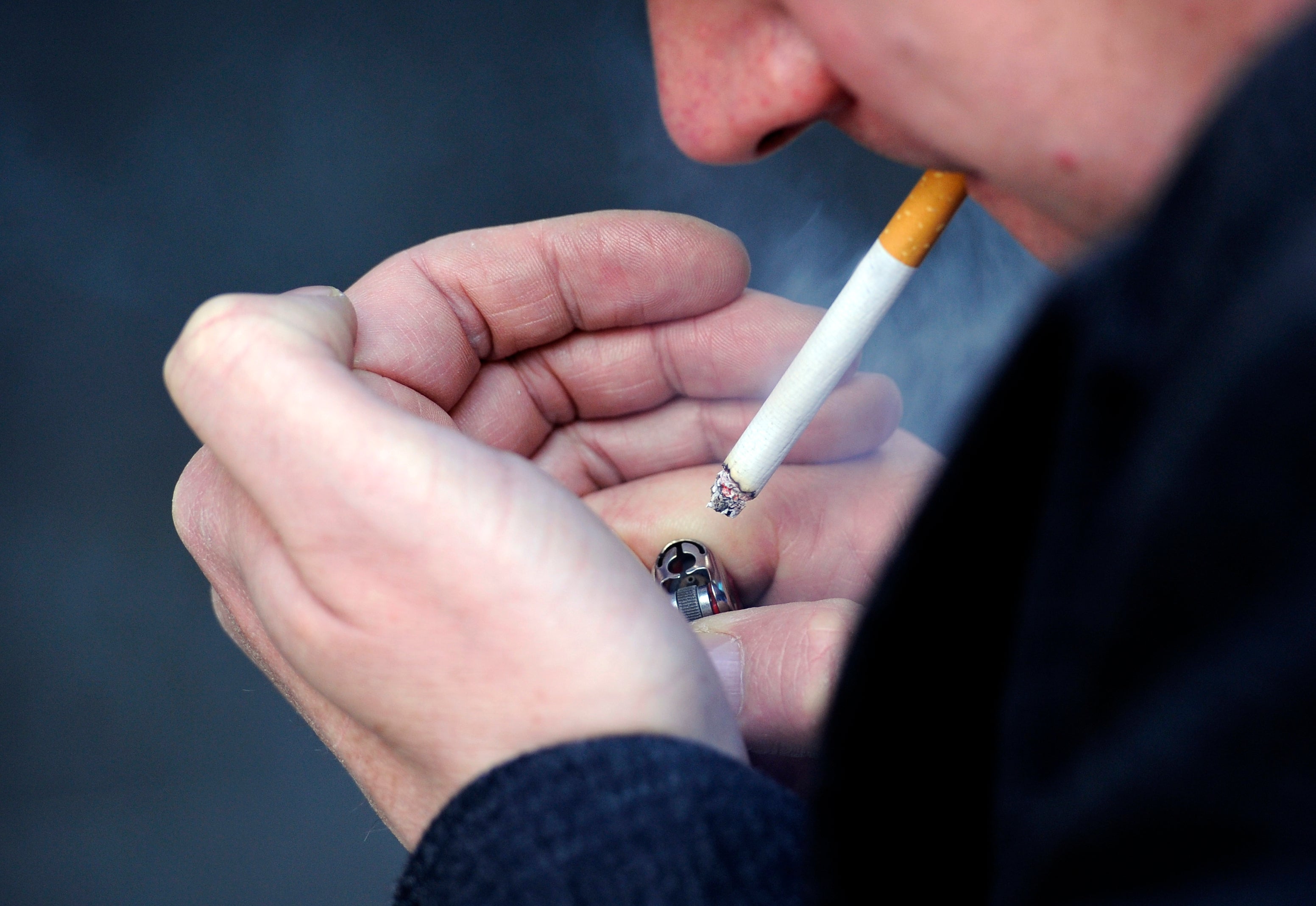NHS hospital stop-smoking services criticised in new audit
One in five hospitals still offer dedicated smoking areas for patients.

Your support helps us to tell the story
From reproductive rights to climate change to Big Tech, The Independent is on the ground when the story is developing. Whether it's investigating the financials of Elon Musk's pro-Trump PAC or producing our latest documentary, 'The A Word', which shines a light on the American women fighting for reproductive rights, we know how important it is to parse out the facts from the messaging.
At such a critical moment in US history, we need reporters on the ground. Your donation allows us to keep sending journalists to speak to both sides of the story.
The Independent is trusted by Americans across the entire political spectrum. And unlike many other quality news outlets, we choose not to lock Americans out of our reporting and analysis with paywalls. We believe quality journalism should be available to everyone, paid for by those who can afford it.
Your support makes all the difference.More must be done to help smokers in hospital kick the habit, a new review has concluded after it found that less than 1% of smokers manage to quit after a hospital stay.
The British Thoracic Society’s (BTS) audit of hospital-based services which help people quit smoking found that “little” progress has been made to help smokers who are in hospital get the help they need to quit.
The authors warned that opportunities have been missed to help improve the health of sick smokers and reduce premature deaths.
The review examined data on 120 hospitals from across the UK and found:
– One in five hospitals still offer dedicated smoking areas for patients;
– Only 9% of smokers received an assessment with a smoking specialist while in hospital; and
– Only 5% were given a quit aid.
The review found that of 2,400 people who smoked and were admitted to hospital, just one was given a vaping kit.
The authors said just 3% of smokers admitted to hospital attended a follow-up service to check on their quit attempt after they were sent home from hospital.
And less than 1% were recorded to be “successfully abstinent post discharge”, the authors wrote.
They also suggested that hospital staff are “ill prepared to support current smokers in their efforts to quit”, with only half of trusts offering frontline staff regular training in helping people stop smoking.
Dr Matt Evison, BTS clinical audit lead, said: “This audit unfortunately shows that we are still struggling to make meaningful progress in helping patients quit smoking at a national level.
“While the results are disappointing today, I am looking at this audit as the start – the baseline against which we now need to improve.”
An NHS spokesperson, said: “Smoking remains one of the biggest causes of poor health, which is why in 2019 the NHS Long Term Plan made significant commitments to support our colleagues in local government to help people to quit.
“Despite the significant pressure the pandemic has placed on hospital teams, the NHS is on track to meet our Long Term Plan commitment to offer tobacco dependency service to every hospital inpatient by 2023/24, as well as rolling out similar services for pregnant women and people with serious mental illnesses to reduce health inequalities.”